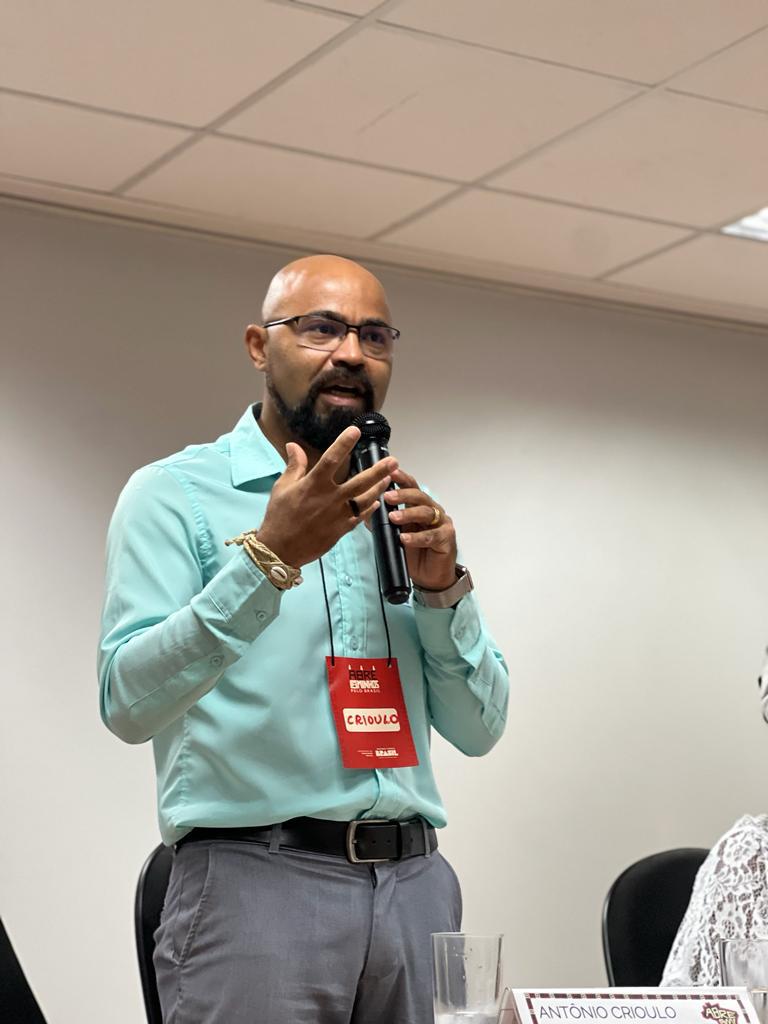News
Counting every voice: Brazil's census includes quilombola communities for the first time
- 12 July 2024
News
CONCEIÇÃO DAS CRIOULAS, Brazil – “If I could choose where to be born, I would choose Conceição das Crioulas,” Antônio Crioulo told UNFPA, the United Nations sexual and reproductive health agency.
Conceição das Crioulas is Mr. Crioulo’s home; it’s where he took his first breath and where his mother, siblings and children live. It’s also home to about 4,300 other people who, like Mr. Crioulo, identify as quilombola – members of Brazil’s traditional Black communities, whose ancestors survived or escaped enslavement between the 16th and 19th centuries.
Afrodescendants in Brazil have long struggled with structural discrimination and its devastating consequences. The poverty rate for Black and brown Brazilians was twice as high in 2021 than it was for white counterparts, and Afro-Brazilian women face much higher risks of dying during childbirth.
Meanwhile, a lack of disaggregated national data on quilombola communities specifically has reinforced and exacerbated their social and political exclusion.
“To go uncounted is to be made invisible and, as a result, left unserved,” UNFPA Executive Director Dr. Natalia Kanem said in a statement on World Population Day 2024. “The most marginalized communities are still underrepresented in data, and the consequences of this deeply affect their lives and well-being.”
“To realize the rights and choices of those pushed to the margins of our societies, we have to count them – because everyone counts.”
Achieving inclusion
About eight decades before slavery was abolished in Brazil in 1888, the land that would become Conceição das Crioulas was purchased by six free Black women, who raised the funds to buy it through cotton cultivation. Today, it is among the estimated 6,000 quilombola territories across the country – many of which are marked by disproportionate rates of poverty and exclusion.
“One of the main losses of the enslavement process is the ability to dream, to feel like a person, to feel part of society,” Mr. Crioulo said. “Brazil was structured based on the strength of the Black people’s work, but there was never recognition of the importance of promoting public policies for them.”
Policymakers need data to design and implement effective initiatives to lift communities up and leave no one behind. Yet, for decades, data-collection tools like the census gathered little to no information on quilombola communities.
"Whenever we argued about the need for specific public policies, authorities claimed they lacked sufficient information about quilombos to plan them,” said Gilvania Maria da Silva, founding member of Coordenação Nacional de Articulação das Comunidades Negras Rurais Quilombolas (CONAQ).

But in 2022, everything changed: After extensive collaboration with CONAQ, UNFPA and quilombola leaders, Brazil’s national statistics agency, IBGE, updated the census to allow respondents to self-identify as quilombola. For the first time, Brazil had an official count of the population, which stands at 1.3 million people.
“The census is a first step that highlights the importance of this tool to ensure all voices are heard,” Ms. Maria da Silva said. “From now on, the narrative of, ‘We don't know where the quilombos are or how they function’, no longer holds, because we have concrete data that are essential for designing public policies."
The power in being counted
Data is a right – one whose fulfilment improves access to health, education and opportunity. Specific information on Brazil’s quilombola community, including on its age range and gender ratio, for instance, has major implications for public health and education policymaking.
"I am a hopeful person, but living in a historically racist and sexist country is not easy. Both go hand-in-hand and directly affect the lives of Black people, especially Black women,” Ms. Maria da Silva said. “
“My hope is that day by day, we can access more data and improve our public policies to repair the damages of the country's slave-holding past."